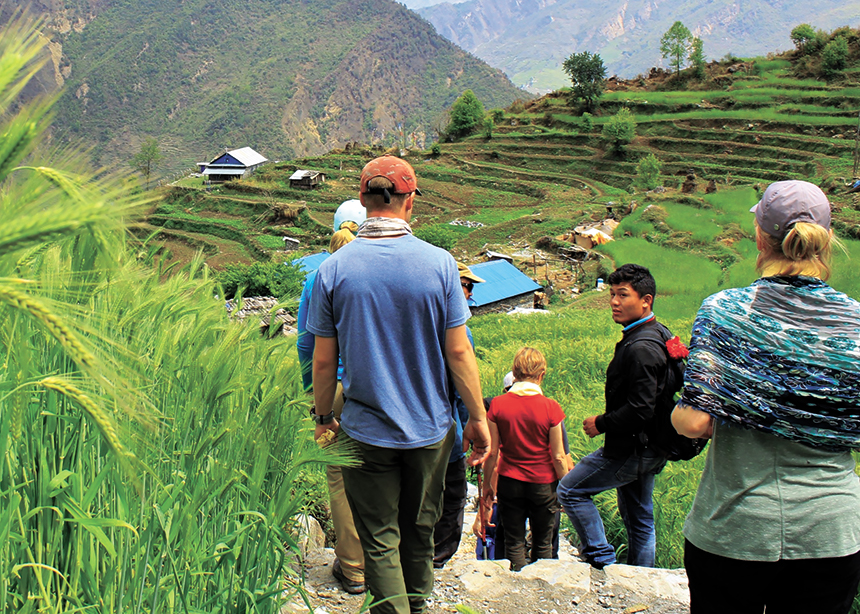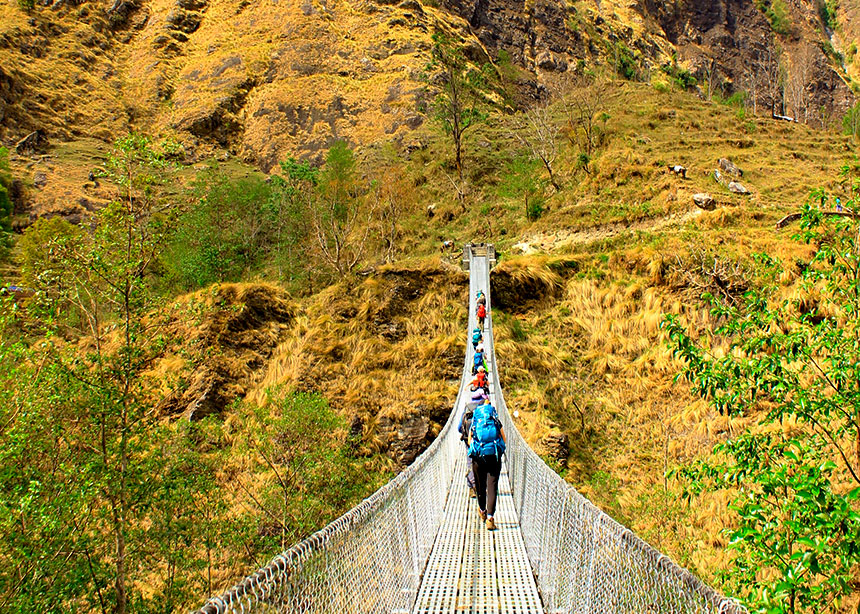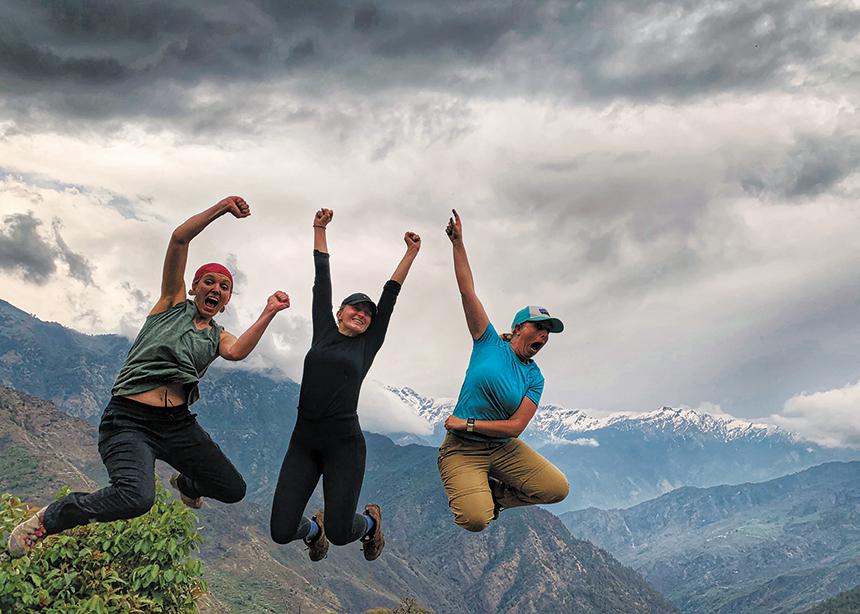From dealing with disaster to mental health recovery, partners of Mennonite Central Committee (MCC) in Nepal and their beneficiaries demonstrate resilience.
That was the theme of MCC’s first-ever trekking learning tour. From April 1 to 19, participants from all over Canada and the United States hiked around Nepal, taking in the vistas while visiting MCC partners who are still in recovery but show incredible strength in adversity.
Joanna Loepp Thiessen was the youngest of the participants. The 21-year-old, who hails from Kitchener, Ont., where she attended the Gathering Church, currently lives in San Antonio, Texas, where she’s taking part in Mennonite Voluntary Service (MVS).
She currently works with people experiencing homelessness and addictions, and she lives in an intentional community.
She says it was the perfect opportunity to take part in a learning tour. She also thought it would be a good opportunity to learn more about mental health, considering her work with MVS.
“I thought it would be interesting to draw connections between mental health in Nepal to mental health in the U.S.,” she says. “So, having that challenging experience emotionally—but having the physical challenge of a trekking trip with other like-minded people—was very appealing to me.”

The group started the trip off with a visit to MCC’s partner Koshish in Nepal’s capital, which supports the mental health and rehabilitation of Nepali women living with severe trauma. Koshish works to reduce stigma and improve resources for people living with mental-health problems.
This visit was the highlight for Loepp Thiessen.
“Hearing first-hand stories of mental-health recovery, I found that really inspiring,” she says. “It was really cool to see MCC is actively trying to get involved and work with mental illness. It was meaningful for me to hear.”
After that visit, participants hiked for six days through northern Dhading province, observing MCC’s earthquake recovery work in four communities, before they trekked out east through the Ruby Valley for six more days.

Daphne Fowler, the MCC country representative in Nepal, says that Shanti Nepal, another partner, supported these communities to rebuild homes, toilets, health clinics, drinking-water systems and livelihood opportunities after an earthquake in 2015.
“We specifically met with mothers groups and user committees—communities responsible for maintaining public infrastructure like drinking water systems and clinics—to hear about their ability to recover after the earthquake, rebuild their communities and gather community support to maintain these improvements,” she adds.
Fowler says that Nepal is highly dependent on tourism, but she thinks learning tours offer something extra. “We hope learning tours offer a unique opportunity to experience Nepal’s unique landscape and cultures in a way that does as little harm as possible,” she says. “For participants who come to Nepal, they gain the opportunity to hear first-hand stories of resilience that hopefully shape their opinion of ‘others’ in a positive light.”
Loepp Thiessen recommends learning tours as a way to deepen a travel experience. “It’s one of the most meaningful ways to travel,” she says. “You get the cultural and food experiences, and physical experiences, but intertwined with a deep level of respect and understanding for the culture. I think I reached a new level of learning and growth that was facilitated by MCC.”
Fowler adds that MCC’s partners also get something out of the exchange. “For our partners and the communities they serve, our hope is that our posture of learning builds their sense of confidence and encourages them to carry on their good work,” she says.
Now that Loepp Thiessen is back in San Antonio, she wants to use what she learned and apply it to her work. “Every Friday, I lead a meditation group with women who are in addiction recovery at the centre I work at,” she says. “We talk about shame, regret, joy and lots of different things. We also explore these themes in writing, singing and drawing. But something I’d like to bring back is opening up a conversation about what it means to build resiliency.”



Add new comment
Canadian Mennonite invites comments and encourages constructive discussion about our content. Actual full names (first and last) are required. Comments are moderated and may be edited. They will not appear online until approved and will be posted during business hours. Some comments may be reproduced in print.